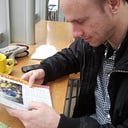Member-only story
Failing to Sell My First Book Hurt, But In the Long-Run, It Helped My Writing Life
Sometimes the thing we think we want most is the thing that let’s us see what we really need.
Between my retail day job, my social life and hustling for freelance writing gigs, it took a full year to write my first nonfiction book proposal. It was sixty-eight pages long. “I appreciate a long, detailed proposal,” an editor at one of my favorite big publishing houses told me on the phone. “This is great.” It was called Crowded: Portrait of Life on a Teeming Planet. No publishers bought it.
Crown, Random House, Ecco, Knopf ─ everyone passed. My agent received the no’s over the course of a few days, but I had her send me most of those emails on one. She offers to keep potentially painful emails from clients and simply pass along the gist, but after giving them time to collect, I requested the messages in order to learn where my book stood and how this process worked. My inbox started pinging right before my lunch break at the tea shop where I worked.
I went outside work and sat on some steps, where I read the rejection emails one after another. Editors’ responses mixed glowing praise of my writing style with clear reasons for declining: too ambitious, too diffuse, too similar to other books in the urbanism category. It needed a different framework; needed to…
